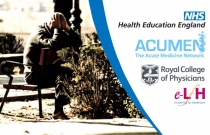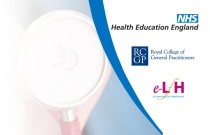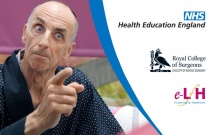Public Health And Community Management Of Adolescent Obesity
Paul Chadwick - Researcher in the Cancer Research UK Health Behaviour Research Centre at University
0.50 Hours
This session will cover the complex area of obesity management at a population level and outline the government strategy in this area. Relevant public policy documents will be highlighted and key targets for intervention will be explained.
Pubertal Assessment
Russel Viner
0.50 Hours
This session discusses the five Tanner stages that boys and girls go through in pubertal development.
Anatomy of the Lungs and Respiratory System (anaesthesia)
Isabeau Walker
0.50 Hours
This session covers the anatomy relevant to respiration, correct tracheal tube placement, anatomical landmarks on a CXR and chest drain insertion.
Parkinson’s Disease: Classical Symptoms and Signs
Brian Wood
0.25 Hours
This session revises the typical symptoms and signs that people with Parkinson’s disease are likely to present with, at the initial stage of their illness.
Assessment and Management of Agitation in Palliative Care
Annabel Price
This session provides a framework for recognising and managing agitation in end of life care patients at any stage of their end of life pathway.
Recognising and Managing Malignant Spinal Cord Compression in Palliative Care
Astrid Adams
0.50 Hours
Some end of life care situations are considered emergencies which require urgent intervention. One of these is spinal cord compression. This session provides a framework for recognising and managing spinal cord compression, when immediate treatment may restore function that would otherwise be lost. This session was reviewed by A....
Assessing Severity of Acute Asthma
Ramin Baghai-Ravary
This session identifies clinical severity indicators in acute asthma.
Chronic Asthma
Swapna Mandal
0.25 Hours
This session will cover the presentation and investigation of chronic asthma in an outpatient setting.
Cough: Investigation and Management and BTS Guidelines
Salman Haider and Elspeth Potton and Veronica White
0.50 Hours
This session focuses on the causes of acute and chronic cough and describes the investigation and management of cough.
Other Signs of Cocaine Use
David Wood
0.25 Hours
This session reviews the signs and symptoms associated with cocaine use.
Community Orientation
Justin Allen
GPs have an increasing role in planning and delivering healthcare. This session considers the learning outcomes described in the Caring for the Whole Person and the Wider Community domain of the RCGP core curriculum and explores how to apply these to everyday situations. This session was reviewed by Khyati Bakhai and updat....
Patient Partnership
Ailsa Donelly
This session will focus on some key aspects of working in partnership with patients to manage their illness using a case study approach.
Pharmacology Essentials - Premedication (anaesthesia)
Tom Peck
This session will introduce you to a range of scenarios where drugs are used to prepare the patient before an operation.
Principles of IPPV (anaesthesia)
John Isaac
0.50 Hours
This session covers the principles of IPPV under anaesthesia.
Airway Maintenance: Tracheal Tube 1
Tim Cook, Christopher Seller and Tom Simpson
0.50 Hours
This session covers basic equipment, appropriate preparation for laryngoscopy and a step-by-step guide to a sound technique for laryngoscopy. The session also covers grading the view of the larynx on laryngoscopy.
CEACCP: Ventricular assist devices
Paul Harris MBChB FRCA FFICM EDICM Lakshminarasimhan Kuppurao MD DA DNB FRCA
0.50 Hours
Heart failure occurs in 1% of the UK adult population yet represents 5% of all hospital admissions, according to the 2008/09 National Heart Failure audit. The 3 month readmission rate is as high as 30% and 30% of patients admitted will die within 1 yr of discharge. Medical therapies, such as angiotensin-converting enzyme inhi....
Patient-Controlled Analgesia
Seema Quasim
0.50 Hours
Patient-controlled analgesia (PCA) is one of the most common techniques used in the control of acute pain, especially in the postoperative setting. This session concentrates on intravenous PCA.
Approaching ACP When Capacity is Uncertain, Fluctuating, or Likely to Deteriorate
Premila Fade
0.50 Hours
This session focuses on managing Advance Care Planning in situations where the patient has a disorder or impairment of the mind or brain which is fluctuating or deteriorating and is likely to affect capacity. This session was reviewed by Premila Fade and Christina Faull, and last updated in September 2016.
Cough: Investigation and Management and BTS Guidelines
Veronica White, Elspeth Potton and Salman Haider
0.50 Hours
This session focuses on the causes of acute and chronic cough and describes the investigation and management of cough.
Acute Presentations of Tuberculosis (TB)
Will Ricketts
This session discusses how tuberculosis might present acutely to the Emergency Department or on the Acute Medical Take (e.g. pulmonary, spinal, meningitis). It also examines the complications of anti-tuberculous chemotherapy that may present acutely (e.g. hepatotoxicity and skin reactions) and their management.
Capacity and Consent - Adolescent Medicine
Victor Larcher
0.25 Hours
This session explores the UK legal framework for assessing competence in young people, with particular regard to consent to treatment. Case studies are used to explore the appropriate action to take.
Communication Skills for Administrative Staff, Volunteers and Other Non-clinical Workers
Christine Hedges and Paula Gomersall
0.50 Hours
This session explores the challenges faced by administrative staff and volunteers when communicating with patients near the end of life and those close to them. It also looks at the skills required to manage these situations. This session was reviewed by Fiona Brandt and Christina Faull and last updated in June 2015.
A Unified DNACPR Policy
Tracey Courtnell
0.75 Hours
This session provides an introduction to Do Not Attempt Cardiopulmonary Resuscitation (DNACPR) policies and highlights when an individual should not be subjected to attempted cardiopulmonary resuscitation (CPR). This session was reviewed by Paul Clark and Christina Faull and last updated in June 2015.
Ethical Tensions in the Consultation
Clare Gerada
0.50 Hours
There is always the possibility of conflict between a doctor’s view and that of the patient. This session explores some of the common ethical issues that confront doctors in their day to day practice. This session was reviewed by Suchita Shah and last updated in June 2014.
























